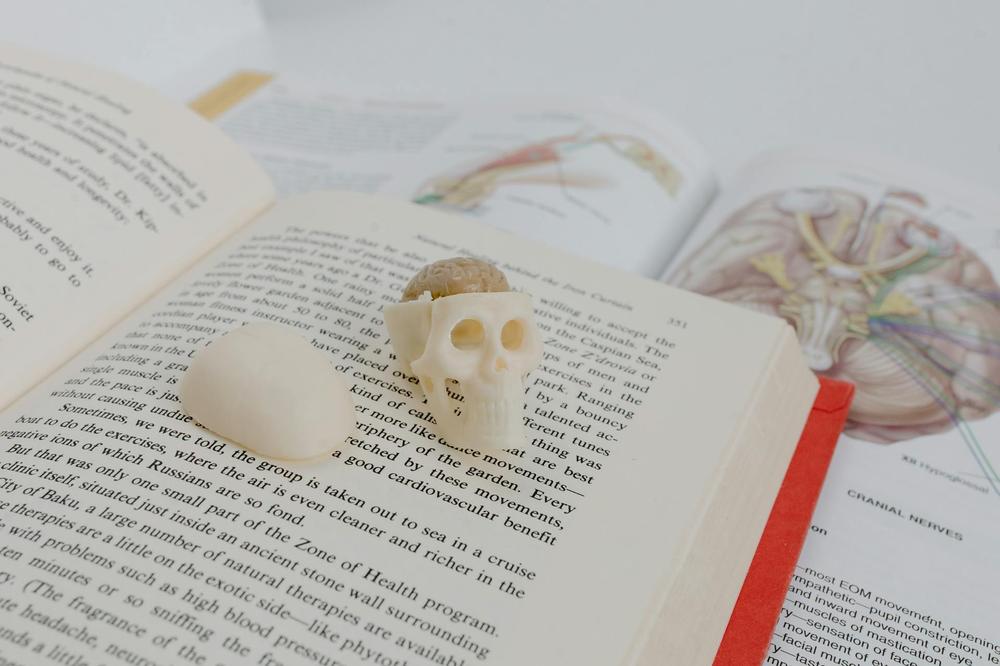Dentistry vs. Medicine: How to Choose?


Studying medicine and dentistry in Europe is becoming increasingly popular. If you are still debating whether to choose medicine or dentistry as your speciality, here are some things you will need to consider beforehand.
Table of Contents
- 1 Dentistry vs. Medicine in Europe
- 2 Studies length
- 3 Medicine or Dentistry - which is more competitive?
- 4 Is dentistry or medicine harder?
- 5 Entry requirements for dentistry vs. medicine in Europe
- 6 Costs/Tuition fees
- 7 Work-life balance
- 8 Dentist vs Doctor: The pros and cons
- 9 How do you choose the right one?
Dentistry vs. Medicine in Europe
When deciding which professional career path to choose, remember that there are many similarities between medicine and dentistry as specialities.
Studies length
- The dentistry courses at European universities are usually 5 or 6 years long. To earn a Dental doctor degree, you must be dedicated, finish the programme and pass all your exams.
- The medical programmes in Europe are 6 years long, and to be awarded a medical degree, you must complete your studies and nail the exams.
In summary, becoming a doctor or a highly qualified dentist in Europe requires 5 or 6 years of educational training. Both courses require learning the basic sciences and going through all pre-clinical and clinical hours. Whichever you decide on, you will need to be prepared to go through the entire programme.
Medicine or Dentistry - which is more competitive?
Deciding on medicine or dentistry, you need to be aware of how much competition you are facing when applying.
In general, medicine is the most desired speciality and has more applicants. Consequently, more open seats are available for medical programmes at most European universities. Dentistry, however, seems more competitive because it has fewer places open for international students.


The good news is that there is no limit to the number of medical schools you can apply to in Europe. So feel free to contact us for further information on securing a place.
Is dentistry or medicine harder?
There is almost no difference in the difficulty of studying both specialities. In the pre-clinical years, there is a lot of overlap in the covered subjects.
Dentists, as well as doctors, will have to know anatomy, physiology, pharmacology, etc. In dentistry studies, there is a greater emphasis on the facial area, mouth, and teeth.
Medicine offers more variety when it comes to specialism compared to dentistry. During clinical years, you will have the chance to observe different types of doctors and develop an interest in some of the many medical specialities.
Similar to medical training, in dentistry, you can put your knowledge into real-life practice and decide if you want to perform dental surgeries or navigate to general dentistry, for example.
So, regarding the question of which one is more challenging, we can say neither is “harder”, yet neither is easy. You will need to find out the complete answer for yourself. Your commitment and dedication will help you to make it to your desired career as a healthcare professional.
Entry requirements for dentistry vs. medicine in Europe
When choosing between medicine or dental studies, you must be familiar with the entry requirements. The admission standards for studying both medicine and dentistry are almost the same. Yet, at some medical schools in Europe, getting accepted into medicine is more complicated.
For example, the most common entry requirements for medicine in Europe are:
- A-levels, BTEC, GCSE, or equivalent high school diploma
- Satisfactory grades in Chemistry, Biology, Maths, and Physics
- English language proficiency
- Entrance exams in Biology, Chemistry, and English (options for online testing)
- A simple online interview to check your motivation for choosing your vocation
- Letter of recommendation or personal statement (optional)
For dentistry, the two mandatory qualifications for all universities are secondary education and proficiency in English. Still, most schools offer a combination of the following entry requirements:
- Biology and Chemistry knowledge at the high school level
- High school diploma, GCSE, A-levels
- Multiple choice questions exam in Biology and Chemistry
- English language proficiency
- Online interview
- Personal statement
To summarise, both specialities have similar requirements. For example, A levels are needed for dentistry and medicine. Yet, getting an acceptance into dentistry appears slightly easier.
Costs/Tuition fees
If budget is one of your main criteria for making a decision, below you will find information about the cost of studying dentistry and medicine in Europe.
Dental school tuition fees in Europe can range from €3,800 to over €30,000 per year. The difference in prices comes mainly from the economic state of the countries. Yet, the cost of studying dentistry in Europe can be very beneficial for international students.
- One of the most affordable countries is Georgia, with tuition fees starting from €3,800 per year.
- In Romania, Bulgaria, Hungary, Slovakia, and Poland, the average educational costs are between €5,000 and €14,000
- The most expensive are countries in Western Europe, such as Italy, Germany, and France, with prices starting from €20,000
For medicine, the tuition fees also vary depending on which country you choose. Here are the general guidelines for the cost of studying medicine in Europe:
- Georgia and Serbia are the most preferred and affordable options, with tuition fees starting from € 4800 per year.
- In the middle, Romania, Bulgaria, Poland, and other countries from Central and Eastern Europe have annual costs of € 4950 - € 15000.
- Italy, Turkey, Cyprus, and Germany fall into the higher price range of € 4800 and above per year.
Check out our extensive list of medical universities in Europe to find detailed information about countries, programmes, tuition fees, living costs, curricula, and much more.
Meanwhile, here are the Top 5 most affordable universities to study medicine abroad:
- European University In Tbilisi - € 5000
- University Of Novi Sad - €7,000 per year
- Sofia Medical University - € 8000
- Trakia Medical University - € 7000
- Medical University of Silesia - € 11000


Career Opportunities
Dentists and doctors must have a certain set of skills to put their medical knowledge into practice. To build a strong medical career, here are some of the characteristics you will have to have:
- Organisation and professionalism
- Analytical thinking and problem-solving skills
- Precise judgement and hands-on work approach
- Excellent communication skills
- Calmness, empathy, and compassion
When deciding on dentistry or medicine, ask yourself what skills you already have and are willing to learn. Shadowing a doctor or a dentist can help you gain a better understanding of the nature and role of each profession, as well as which one may be the greatest fit for you.
In terms of career opportunities, dentistry can be pointed as the career path with better options and higher potential earnings.
The duration of dental studies in some European medical schools is shorter than medical studies. Also, dentists can start earning straight after university, as they can begin their practice as soon as they receive their degree.
The situation is slightly different for doctors, as they can't go straight from medical school and begin practising. Depending on the chosen speciality, they have to do a residency ranging from two to five years before practising in the private sector, for example.
It is also considered that dental specialists earn more than medics.
Work-life balance
Now, let's talk about lifestyle after you graduate from medical versus dental school. Between the two, dentistry is believed to allow a better lifestyle and work-life balance.
Dental work is more specific and requires less need for unsociable working hours. An average dentist can secure a nine-to-five job, while UK doctors, for example, often take long-hours shifts at hospitals.
It's also expected doctors be available 24/7, while general dentists are rarely expected to be. However, it’s possible to have a good work-life balance in medicine if you decide on a speciality like dermatology, for example. This way, many late-night and weekend shifts can be avoided.
Another way to achieve a healthy work-life balance in medicine, similar to dentistry, is by becoming a GP.
Consider how each profession would fit in with your other life goals.
Dentist vs Doctor: The pros and cons
It is challenging to choose between dentistry and medicine. Both professions frequently overlap, and each plays a significant role in resolving and treating health issues.
To help you with this decision, here is a summary of the main pros and cons:


How do you choose the right one?
There isn’t a definite answer to that question. Both dentistry and medicine are highly respected professions that can provide extremely rewarding careers. Only individual tastes and personal goals will determine the field a student should follow. The determination and desire to study will help you to achieve your dream.
When choosing between dentistry and medicine, reflect on your values, interests, skills, and qualities. Check career websites like NHS Careers to explore future employment opportunities. Speak to current medical or dentistry students and medical professionals to understand what studying and practising look like. At the end of the day, you decide on a career path that is the best fit for you.
In conclusion
Whether you choose to study medicine or dentistry in Europe, you will commit to helping people by working in the healthcare system, which is admirable.
Hopefully, this post has given you insights when deciding dentistry vs. medicine. If you're still wondering which path to choose, check out our article on the top 10 reasons to study dentistry or medicine in Europe.
Leave a Reply

About Medlink Students
Leading international recruitment company for medical students in Europe. British Council Certified Agents. 10+ years of experience and more than 10,000 students advised.








